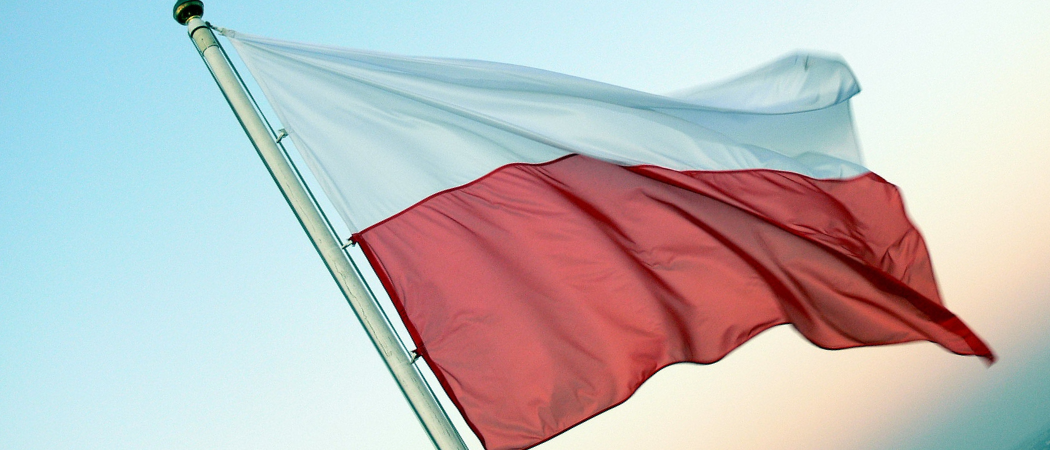AI has a huge appetite for electricity. A new Polish centre wants to set standards for energy efficiency and develop taxonomy for AI models

Polish national flag. Photo credits: Thomas / Flickr
A new unit of the pan-European Laboratory for Learning and Intelligent Systems (ELLIS) has opened its doors in Warsaw, with the aim of improving the energy efficiency of AI and machine learning systems.
ELLIS Unit Warsaw is based at IDEAS NCBR, an AI centre set up by the National Centre for Research and Development to support the technology in Poland by creating a platform connecting the academic and business communities.
The unit’s director, Tomasz Trzciński, says that its home in IDEAS, and as the first ELIIS unit in Poland and one of the few branches of the laboratory in central and eastern Europe, means ELLIS Unit Warsaw, is uniquely positioned both geographically and in research capability, to lead AI sustainability efforts.
In Poland, more than 70% of electricity is produced from fossil fuels. ELLIS Unit Warsaw wants to turn this weakness into a strength. “The energy efficiency issue is a part of our national story in Poland, and we aim to bring research excellence to tackle this issue,” Trzciński told Science|Business.
As AI makes rapid advances, most recently with the advent of large language model generative AI systems such as ChatGPT, Trzciński says the negative aspects, including energy efficiency issues, are often overlooked.
He draws a comparison with the explosive growth and shift towards bigger engines in the US automotive industry during the 1930s-1950s. “We are in a similar situation today with AI,” he said. AI models have more and more parameters, “but we are not fully aware of the drawbacks of their upskilling.”
The unit’s goal is to serve as a “lighthouse of awareness” of the potential adverse impacts and to develop more efficient models. “My dream for the ELLIS Unit Warsaw is to become a standard-setter for energy efficiency and model taxonomy,” said Trzciński said. “We don't have this taxonomy yet in machine learning, and I believe it's time for us to introduce this concept. Much like when you enter a shop and can immediately identify which washing machine is more efficient, we aim to provide that clarity for AI models.”
To stimulate adoption of more efficient models, the unit plans to increase awareness of what resources large models consume and subsequently deliver improvements. Trzcińsk hopes that when the unit demonstrates the efficiency of its models, start-ups across Europe will follow with adoption.
“For start-ups, this is not just about innovation—it's about business viability,” he said. To compete with US and China, optimising the use of resources is critical. In Trzciński’s view, consciously limiting energy consumption leads to more creative solutions.
Excellence network
Trzciński says a key challenge in delivering on these objective lies in integrating the new unit into the broader ELLIS network across Europe.
ELLIS Unit Warsaw is the 41st in the ELLIS AI excellence network and one of the few in central and Eastern Europe. Trzciński says that Poland joining the network has created a better geographical equilibrium and provides advantages when applying for EU grants. For example, the network can benefit from Horizon Europe funding designated for Widening countries.
Trust is the key to integration, according to Trzciński. To build this trust, ELLIS Unit Warsaw ensures its research quality is at least on par with, or higher than, other units, and engages in collaborative initiatives.
For example, it has started a collaboration with the European Lighthouse of AI for Sustainability, a consortium of more than 30 European institutions focused on advancing AI to address challenges such as climate change and the energy crisis.
It is also implementing the EXplainable ALgorithmic Tools (EXALT) project, funded through a European Research Council (ERC) proof of concept grant awarded to Piotr Sankowski, president of the IDEAS NCBR artificial intelligence research centre. The grant is to support development of a tool that will enrich optimisation algorithms by determining and explaining how AI makes decisions.
Pivotal player
ELLIS Unit Warsaw differentiates itself by a strong focus on applied research. The unit is set up as a company, classifying it as an SME, which facilitates its role in bridging academia and industry. “In the long-term, our goal is to establish our unit as a pivotal player, both locally, by connecting business and academia, and globally, as a lighthouse for sustainability and research excellence,” Trzciński said.
One of the unit’s latest achievements is to cooperate with the R-GRID project, which aims to develop tools to identify critical elements of power grids and increase their resilience. The project is implemented by research units in Poland, Finland and Ukraine, and supported by the NATO Science for Peace and Security Programme.
In addition to public money from IDEAS NCBR, and from agencies such as the National Science Centre in Poland, and European grants, the unit is looking for funding and access to data from companies that collaborate with it on applied research. For example, it is working with the online mental health platform Wellbee and the customer relationship system Livespace as part of ERC grants.
In the future, Trzciński wants to make ELLIS Unit Warsaw more international by attracting researchers from outside Poland. “We are looking for highly motivated PhD students from all around the world and from various backgrounds,” he said.





 A unique international forum for public research organisations and companies to connect their external engagement with strategic interests around their R&D system.
A unique international forum for public research organisations and companies to connect their external engagement with strategic interests around their R&D system.